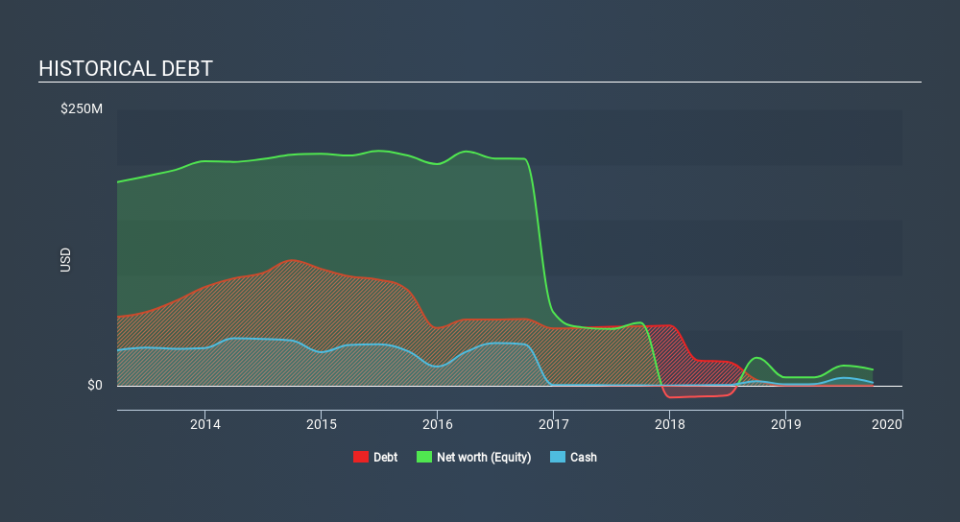Here's Why Planet Green Holdings (NYSEMKT:PLAG) Must Use Its Cash Wisely

We can readily understand why investors are attracted to unprofitable companies. For example, although software-as-a-service business Salesforce.com lost money for years while it grew recurring revenue, if you held shares since 2005, you'd have done very well indeed. Having said that, unprofitable companies are risky because they could potentially burn through all their cash and become distressed.
Given this risk, we thought we'd take a look at whether Planet Green Holdings (NYSEMKT:PLAG) shareholders should be worried about its cash burn. For the purpose of this article, we'll define cash burn as the amount of cash the company is spending each year to fund its growth (also called its negative free cash flow). The first step is to compare its cash burn with its cash reserves, to give us its 'cash runway'.
Check out our latest analysis for Planet Green Holdings
When Might Planet Green Holdings Run Out Of Money?
A company's cash runway is the amount of time it would take to burn through its cash reserves at its current cash burn rate. As at September 2019, Planet Green Holdings had cash of US$2.7m and no debt. Importantly, its cash burn was US$14m over the trailing twelve months. Therefore, from September 2019 it had roughly 2 months of cash runway. It's extremely surprising to us that the company has allowed its cash runway to get that short! Depicted below, you can see how its cash holdings have changed over time.
How Well Is Planet Green Holdings Growing?
Planet Green Holdings boosted investment sharply in the last year, with cash burn ramping by 79%. While that certainly give us pause, we take a lot of comfort in the strong annual revenue growth of 98%. Considering the factors above, the company doesn’t fare badly when it comes to assessing how it is changing over time. Of course, we've only taken a quick look at the stock's growth metrics, here. This graph of historic revenue growth shows how Planet Green Holdings is building its business over time.
How Easily Can Planet Green Holdings Raise Cash?
Since Planet Green Holdings has been boosting its cash burn, the market will likely be considering how it can raise more cash if need be. Issuing new shares, or taking on debt, are the most common ways for a listed company to raise more money for its business. One of the main advantages held by publicly listed companies is that they can sell shares to investors to raise cash to fund growth. By comparing a company's annual cash burn to its total market capitalisation, we can estimate roughly how many shares it would have to issue in order to run the company for another year (at the same burn rate).
Since it has a market capitalisation of US$19m, Planet Green Holdings's US$14m in cash burn equates to about 74% of its market value. Given how large that cash burn is, relative to the market value of the entire company, we'd consider it to be a high risk stock, with the real possibility of extreme dilution.
How Risky Is Planet Green Holdings's Cash Burn Situation?
As you can probably tell by now, we're rather concerned about Planet Green Holdings's cash burn. In particular, we think its cash runway suggests it isn't in a good position to keep funding growth. On the other hand at least it could boast rather strong revenue growth, which no doubt gives shareholders some comfort. Once we consider the metrics mentioned in this article together, we're left with very little confidence in the company's ability to manage its cash burn, and we think it will probably need more money. While we always like to monitor cash burn for early stage companies, qualitative factors such as the CEO pay can also shed light on the situation. Click here to see free what the Planet Green Holdings CEO is paid..
Of course, you might find a fantastic investment by looking elsewhere. So take a peek at this free list of companies insiders are buying, and this list of stocks growth stocks (according to analyst forecasts)
If you spot an error that warrants correction, please contact the editor at editorial-team@simplywallst.com. This article by Simply Wall St is general in nature. It does not constitute a recommendation to buy or sell any stock, and does not take account of your objectives, or your financial situation. Simply Wall St has no position in the stocks mentioned.
We aim to bring you long-term focused research analysis driven by fundamental data. Note that our analysis may not factor in the latest price-sensitive company announcements or qualitative material. Thank you for reading.



